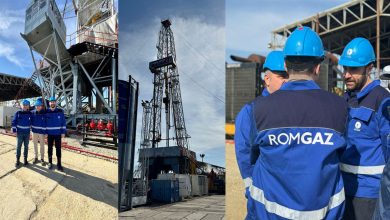Financing for the construction of the first network of CNG stations in Romania
On January 23, the Romanian Energy Efficiency Fund (FREE) concluded the 41st financing agreement. The beneficiary is Denisson Energy, company based in Selimbar, Sibiu County. It has obtained a commercial bridge loan, worth USD 1,969,724, to finance an investment with a total value of USD 5,903,338.
The investment targeting the ‘Establishment of the first compressed natural gas (CNG) supply network in Romania’ is ensured from the company’s own sources and resources allocated by the European Commission.
The general objective of the investment is to support development of a sustainable and efficient transport system and promote decarbonization of road transport along the core network corridors, by introducing an alternative fuel (CNG) in Romania.
The first specific objective is to initially establish in the market a network of CNG stations consisting of 9 functional supply points along the TEN-T Core Network Corridors in Romania (Orient-East – Med & Rhine – Danube). The CNG station network will be developed around the important nodes of the core network to simultaneously cover the potential demand for long-distance and urban transport. It will also ensure a reasonable distance until the next station (around 150km at most, but always less than 300km) for domestic and cross-border traffic.
Implementation of the CNG station network is planned in three consecutive phases, resulting in the implementation of 3 CNG stations per year between 2019, 2020 and 2021.
The second specific objective is to support market entry and implementation of CNG in Romania. This objective will be fulfilled by increasing demand and visibility in terms of both CNG and through the pilot station network, by establishing and optimizing the business-customer relationship and by identifying and removing the administrative and legislative barriers.
The investment will lead to replacement, in the case of pessimistic evaluations of the development of the fleet operating based on compressed natural gas, of an annual consumption of 386 tons/year of standard gasoline and 917 tons/year of standard diesel, with an annual consumption of 1,175 tons/year of compressed natural gas. Thus, annual energy savings estimated at around 25toe/year will be obtained, as well as annual carbon dioxide emissions reductions of 951 tons/year.



